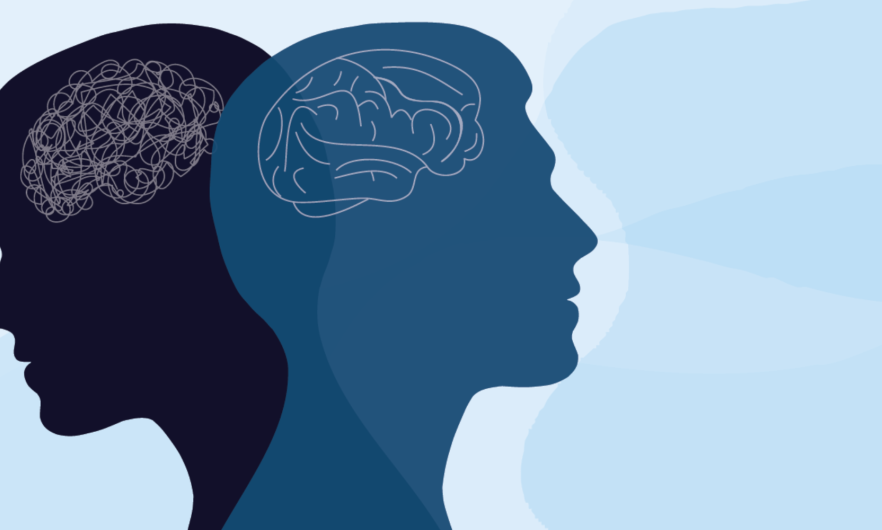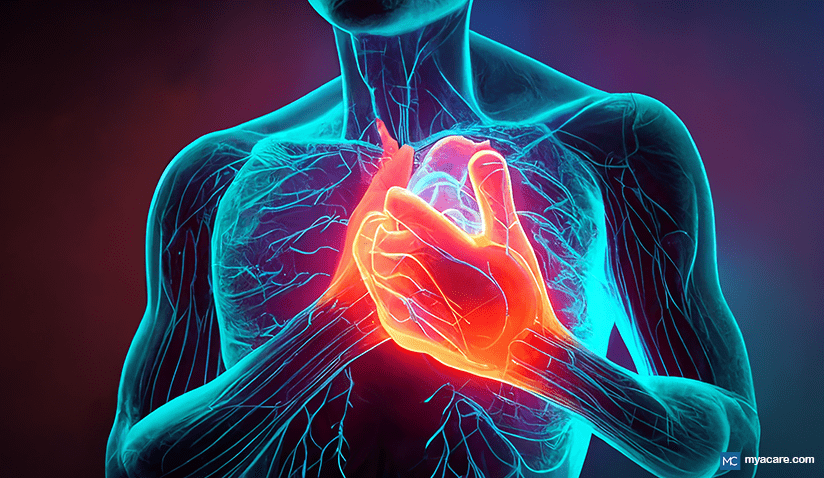
Understanding Stress, Anxiety, and Depression: The Triad of Mental Health Challenges
Mental health is a critical component of overall well-being, yet it often receives less attention than physical health. Among the various mental health issues, stress, anxiety, and depression are the most prevalent and interrelated conditions affecting millions of people worldwide. In the United States, these conditions have reached alarming levels, impacting individuals' quality of life, productivity, and even physical health. This article delves into the prevalence of these mental health issues, their causes, symptoms, diagnostic methods, treatments, and effective coping techniques.
Introduction
Mental health problems, particularly stress, anxiety, and depression, have become pervasive in modern society. According to the National Institute of Mental Health (NIMH), nearly one in five U.S. adults live with a mental illness, and anxiety disorders are the most common, affecting 19.1% of the adult population. Depression, a leading cause of disability worldwide, affects approximately 7.8% of U.S. adults. These conditions often coexist, creating a complex web of mental health challenges that require comprehensive understanding and management.
Causes of Stress, Anxiety, and Depression
Stress
Stress is the body's response to perceived threats or demands, triggering a "fight-or-flight" response. While some stress can be beneficial, chronic stress can have detrimental effects on mental and physical health. Common causes of stress include:
- Work-Related Stress: Job pressure, long hours, and job insecurity.
- Financial Stress: Economic instability, debt, and financial insecurity.
- Relationship Stress: Family conflicts, divorce, and social isolation.
- Health-Related Stress: Chronic illnesses, disability, and caregiving responsibilities.
Anxiety
Anxiety is characterized by excessive worry, fear, and apprehension about future events. While occasional anxiety is a normal part of life, chronic anxiety can interfere with daily activities. Common causes of anxiety include:
- Genetic Factors: A family history of anxiety disorders.
- Environmental Factors: Traumatic events, stressful life situations, and exposure to violence.
- Medical Conditions: Certain health issues, such as thyroid problems or heart arrhythmias, can cause anxiety.
- Substance Abuse: Withdrawal from drugs or alcohol can trigger anxiety symptoms
Depression
Depression is a mood disorder characterized by persistent feelings of sadness, hopelessness, and a lack of interest or pleasure in activities. It can result from a combination of genetic, biological, environmental, and psychological factors. Common causes of depression include:
- Genetic Predisposition: A family history of depression.
- Biological Factors: Imbalances in brain chemicals such as serotonin and dopamine.
- Trauma and Stress: Traumatic events, chronic stress, and significant life changes.
- Medical Conditions: Chronic illnesses, pain, and hormonal imbalances.
- Substance Abuse: Drug and alcohol abuse can contribute to depressive symptoms.
Symptoms of Stress, Anxiety, and Depression
Recognizing the symptoms of stress, anxiety, and depression is crucial for early intervention and treatment. While these conditions share some overlapping symptoms, each has distinct characteristics.
- Symptoms of Stress
- Physical Symptoms: Headaches, muscle tension, fatigue, sleep disturbances, and gastrointestinal issues.
- Emotional Symptoms: Irritability, restlessness, and feelings of overwhelm.
- Cognitive Symptoms: Difficulty concentrating, racing thoughts, and forgetfulness.
- Behavioral Symptoms: Changes in appetite, increased use of alcohol or drugs, and withdrawal from social activities.
- Symptoms of Anxiety
- Physical Symptoms: Rapid heartbeat, sweating, trembling, shortness of breath, and dizziness.
- Emotional Symptoms: Excessive worry, fear, and feelings of impending doom.
- Cognitive Symptoms: Difficulty concentrating, racing thoughts, and indecisiveness.
- Behavioral Symptoms: Avoidance of feared situations, restlessness, and hypervigilance.
- Symptoms of Depression
- Physical Symptoms: Fatigue, changes in appetite and weight, sleep disturbances, and aches and pains.
- Emotional Symptoms: Persistent sadness, feelings of hopelessness, and loss of interest in activities.
- Cognitive Symptoms: Difficulty concentrating, memory problems, and negative thoughts.
- Behavioral Symptoms: Withdrawal from social interactions, reduced energy, and thoughts of self-harm or suicide.
Diagnostic Tests for Mental Health Disorders
Diagnosing stress, anxiety, and depression typically involves a comprehensive assessment by a mental health professional. Diagnostic methods may include:
Clinical Interviews
Mental health professionals conduct detailed interviews to gather information about the individual's symptoms, medical history, and personal circumstances. These interviews help identify the specific condition and its severity.
Questionnaires and Self-Report Scales
Standardized questionnaires and self-report scales, such as the Beck Depression Inventory (BDI) and the Generalized Anxiety Disorder 7 (GAD-7), can help quantify the severity of symptoms and monitor treatment progress.
Physical Examinations
A physical examination can help rule out underlying medical conditions that may contribute to mental health symptoms. Blood tests and other medical tests may be conducted to ensure comprehensive evaluation.
Psychological Assessments
Psychological assessments, including cognitive and behavioral evaluations, can provide insights into the individual's mental health status and identify specific areas of concern.
Treatment Options for Stress, Anxiety, and Depression
Effective treatment for stress, anxiety, and depression often involves a combination of therapies tailored to the individual's needs. Treatment options include:
Psychotherapy
- Cognitive-Behavioral Therapy (CBT): CBT is a widely used therapy that helps individuals identify and change negative thought patterns and behaviors.
- Dialectical Behavior Therapy (DBT): DBT is effective for treating chronic anxiety and depression by teaching coping skills and emotional regulation.
- Interpersonal Therapy (IPT): IPT focuses on improving interpersonal relationships and social functioning.
- Mindfulness-Based Stress Reduction (MBSR): MBSR teaches mindfulness techniques to manage stress and anxiety.
Medications
- Antidepressants: Selective serotonin reuptake inhibitors (SSRIs) and serotonin-norepinephrine reuptake inhibitors (SNRIs) are commonly prescribed for depression and anxiety.
- Anxiolytics: Benzodiazepines and other anti-anxiety medications can provide short-term relief from severe anxiety symptoms.
- Mood Stabilizers: These medications are used to treat mood disorders and prevent mood swings.
- Beta-Blockers: Beta-blockers can help manage physical symptoms of anxiety, such as rapid heartbeat.
Lifestyle Changes
- Regular Exercise: Physical activity can improve mood and reduce anxiety by releasing endorphins and promoting relaxation.
- Sleep Hygiene: Establishing a regular sleep routine and improving sleep quality can significantly impact mental health.
- Substance Avoidance: Reducing or eliminating the use of alcohol, drugs, and caffeine can help alleviate symptoms.
Coping Techniques for Stress, Anxiety, and Depression
In addition to professional treatment, individuals can employ various coping techniques to manage stress, anxiety, and depression effectively. These techniques can empower individuals to take control of their mental health and improve their quality of life.
Mindfulness and Meditation
Practicing mindfulness and meditation can help individuals stay present, reduce rumination, and manage stress and anxiety. Techniques such as deep breathing, progressive muscle relaxation, and guided imagery can promote relaxation and mental clarity.
Journaling
Writing down thoughts and feelings can provide a therapeutic outlet for processing emotions and identifying patterns in thinking and behavior. Journaling can also help individuals track their progress and set goals for improvement.
Social Support
Connecting with friends, family, and support groups can provide emotional support and reduce feelings of isolation. Sharing experiences and seeking advice from others who have faced similar challenges can be reassuring and empowering.
Time Management
Effective time management can help reduce stress by organizing tasks, setting priorities, and breaking large tasks into manageable steps. Creating a balanced schedule that includes time for relaxation and self-care is essential.
Hobbies and Interests
Engaging in activities that bring joy and fulfillment can help distract from negative thoughts and promote a sense of accomplishment. Pursuing hobbies, creative endeavors, and leisure activities can enhance overall well-being.
Professional Help
Seeking help from mental health professionals, such as therapists, counselors, and psychiatrists, can provide valuable guidance and support. Professional therapy offers a safe space to explore emotions, develop coping strategies, and receive evidence-based treatment.
Conclusion
Stress, anxiety, and depression are significant mental health challenges that affect millions of people worldwide. Understanding the causes, symptoms, diagnostic methods, treatments, and coping techniques is crucial for managing these conditions effectively. By recognizing the signs and seeking appropriate help, individuals can take proactive steps towards improving their mental health and overall quality of life. Embracing a holistic approach that combines professional treatment, lifestyle changes, and coping techniques can empower individuals to navigate the complexities of mental health and achieve a sense of balance and well-being.



